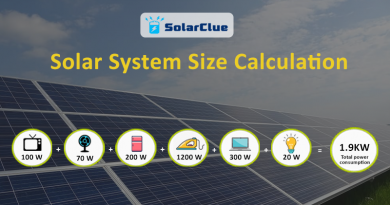Are You A Homeowner Curious About Going Solar Heres Your Guide
With an ever-growing consciousness towards environmentally friendly solutions, numerous homeowners today are exploring the potential of renewable energy sources. One leading option that stands out is solar energy due to its sustainability and cost-effectiveness. This article is designed for homeowners who are curious about switching to solar, offering insight into why solar power is a smart choice and a guide on how you should proceed. Understanding solar energy and its potential can lead you to make an informed decision benefitting both you and the planet.
Table of Contents
Are You A Homeowner Curious About Going Solar Heres Your Guide
Understanding Solar Energy
Solar energy is a renewable energy source that harnesses the immense power of the sun. It involves converting sunlight into electricity using solar panels typically installed on the roofs of homes or other open spaces. Unlike traditional energy sources, solar power is clean, green, and renewable, making it a significantly sustainable solution to our energy needs. Notably, it diminishes our reliance on fossil fuels, thereby reducing greenhouse gas emissions and subsequently mitigating climate change.
The Benefits of Solar Energy
Switching to solar energy offers a wide range of benefits. These include saving on energy bills, adding value to your home, and potential earnings from excess energy generated. Additionally, sunlight, the primary source of solar energy, is globally abundant and free, making solar a dependable and cost-effective solution in the long run. It’s worth noting that the cost of solar panels has significantly decreased in recent years, making solar energy an even more accessible choice for homeowners.
Getting Started with Solar
If you’re considering switching to solar, you need to be aware of several critical steps. Home installation of solar panels typically requires professional solar installers. The first step is an evaluation of your home to determine if it’s suited for a solar installation. Factors considered at this point include the size and angle of your roof, climate, and local legislation.
Additionally, consideration is given to how much electricity you use and at what times during the day you require it the most. If your home is indeed a good fit for solar energy, the next steps would generally involve purchasing or leasing solar panels, having them professionally installed, and setting up a connection to the local power grid.
Understanding the Costs and Financial Incentives
While the initial cost of acquiring and installing solar panels may seem substantial, it’s essential to consider this as an investment. Over time, solar energy can significantly reduce or even eliminate your electricity bills, providing considerable financial savings.
Various federal, state, and local incentives can further help offset the initial costs. One such incentive is the federal solar tax credit, also known as the Investment Tax Credit (ITC), which allows homeowners to deduct a percentage of the cost of their solar panel system from their taxes. Many states also offer additional incentives such as rebates and grants, making solar energy even more affordable.
Although solar energy is a great choice for many homeowners, it’s necessary to acknowledge potential roadblocks. The initial cost may be prohibitive for some, even with available financial incentives. Moreover, your geographical location, local legislation, and the design of your house could also present challenges. It’s crucial to thoroughly research and consult professionals before making a decision.
“Are You A Homeowner Curious About Going Solar Heres Your Guide”
Conclusion
As more homeowners around the globe make the switch to renewable energy, solar power emerges as a viable and attractive solution. Embracing solar energy can significantly reduce your ecological footprint, lead to substantial cost savings, and potentiate a sustainable future. It’s necessary, however, to understand the initial commitment and costs involved and be prepared for potential challenges. Rest assured, the benefits of turning solar would inevitably outshine the hurdles, providing a smarter choice for you and the environment. With the right research and professional guidance, the transition to solar energy can be a rewarding venture for any homeowner.




